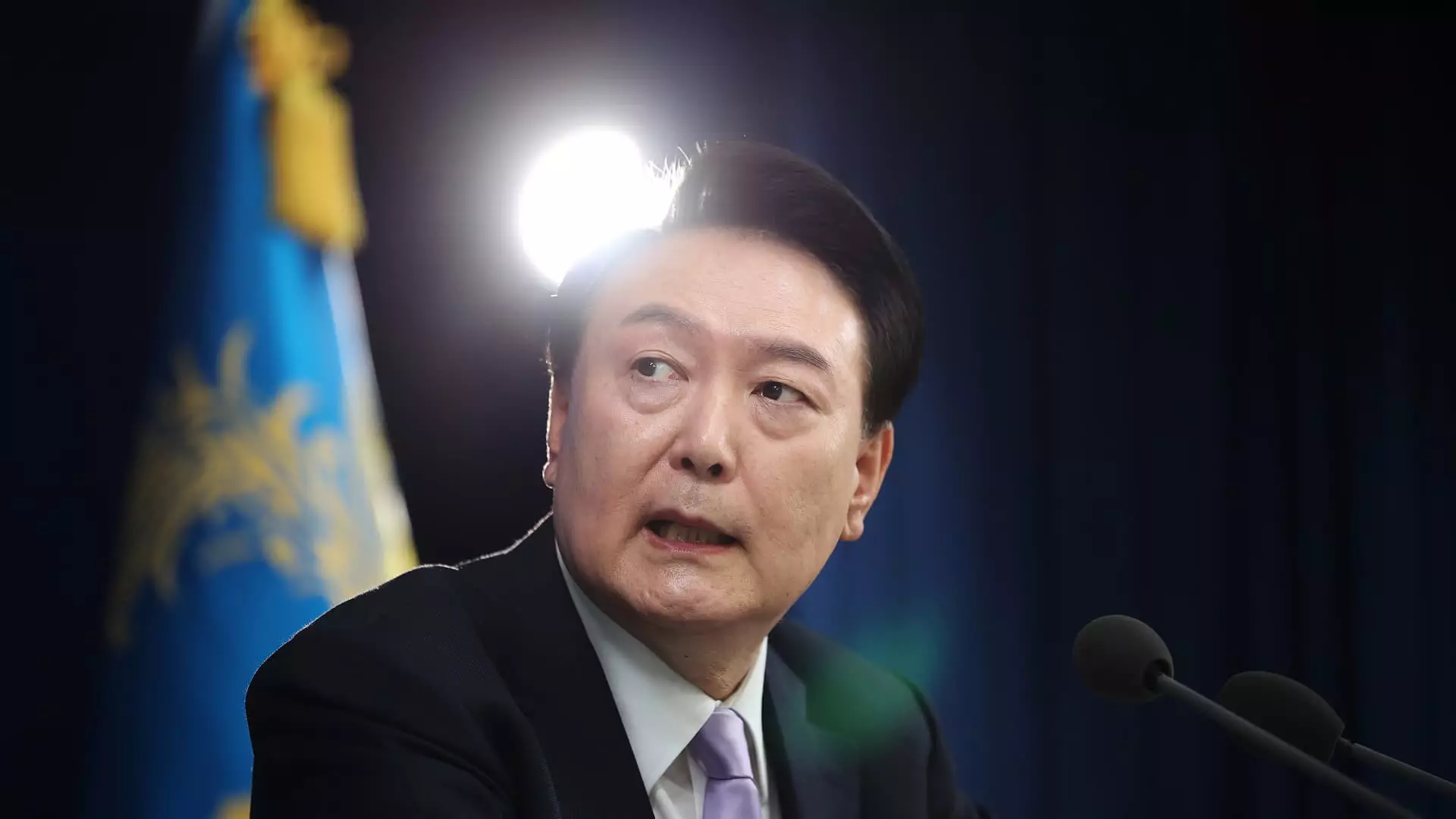The recent uprising of political conflict surrounding South Korean President Yoon Suk Yeol represents a critical juncture in the nation’s history. On Saturday, Yoon narrowly avoided an impeachment vote triggered by his controversial attempt to impose martial law earlier that week—an action unprecedented since the military dictatorship era that stained South Korea’s democratic legacy. The impeachment motion initiated by the opposition Democratic Party required two-thirds support from the National Assembly, a feat thwarted by the tactical boycott from Yoon’s ruling People Power Party. This incident highlights a deepening rift within the political landscape, pushing the nation’s democratic processes into jeopardy.
The dramatic sequence began with Yoon’s call for martial law, which he justified as necessary for “protecting the constitutional order” amidst allegations of pro-North Korea anti-state activities. His approval rating, lingering at a shocking 19%, reflects public discontent, establishing a fragile backdrop for his leadership. Following the dramatic ultimatum, many were left questioning the stability of not only Yoon’s presidency but also the very essence of South Korea’s democratic ideals.
The Impeachment Motion and its Implications
The motion tabled against Yoon illustrates the intensity of political opposition in South Korea. Opposition members, sensing an opportunity to leverage Yoon’s weakened standing, indicated intentions to revisit the impeachment should the initial attempt fall through. Such measures could have dramatically hindered his presidential authority, demanding a new election within 60 days if successful. This scenario touches on the historical fragility of political power in South Korea, a theme which has seen two presidents, Roh Moo-hyun and Park Geun-hye, stripped of their powers due to impeachment proceedings in the 21st century alone.
However, the failure of the motion paves the way for Yoon to consolidate power, albeit precariously. The walking out of allied lawmakers prior to the vote underscores a potential fracture within the ruling party itself, as fears of Yoon taking impulsive measures resonate among his colleagues. As political tensions continue to mount, one must wonder: how long can Yoon maintain his hold before another crisis looms?
The aftershocks of Yoon’s martial law declaration reverberated through South Korea’s economy, stirring concerns among international observers and market analysts alike. The volatility led to impactful decisions from the Financial Services Commission, illustrating a swift readiness to inject substantial financial resources—50 trillion won—aimed at stabilizing inflamed equities in response to escalating political turbulence.
Economists are signaling caution amidst the political chaos, predicting potential downward trends for the South Korean won against global currencies. Notably, the impending fear of rate cuts from the Bank of Korea further complicates the economic outlook, solidifying a bearish sentiment towards the national currency.
In addressing these turbulent economic indicators, Adarsh Sinha from BofA Securities emphasized that the political climate plays a significant role in market sentiment, yet fundamental economic pressures contribute substantial weight. Such insights prompt a careful examination of the intersection between political unrest and economic stability, a factor that could have long-term ramifications for South Korea.
Yoon’s brief flirtation with martial law resurrects haunting memories of military authoritarianism that have left indelible scars on the South Korean political psyche. His promises, following the backlash of martial law, including apologies aimed at pacifying public outrage, signal acknowledgment of this fraught historical context.
The sentiments expressed by Han Dong-hoon of the People Power Party resonate with cautionary tales—a call for Yoon’s suspension underscores fears surrounding the potential for future radical political maneuvers. This breeds a society entrapped in uncertainty, where citizens grapple with the implications of potentially unhinged governance reminiscent of darker times.
Yoon’s hasty decisions may not only compromise his political future but also jeopardize South Korea’s hard-earned democratic fabric. His assurances to avoid subsequent attempts at martial law must be met with skepticism; a delicate balance remains to be struck between maintaining authority and respecting the democratic will of the populace.
President Yoon Suk Yeol’s reign is marked by tensions that threaten the stability of South Korea’s leadership and economic landscape. As tensions escalate, both political and economic analysts are keenly observing how these unfolding events will shape not only Yoon’s presidency but also the future trajectory of democracy within a nation that has fought hard to preserve its freedoms.

